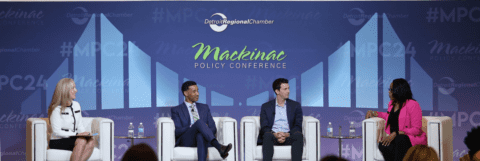The changing environment of philanthropy has led to what Diallo Smith, President and Chief Operating Officer of Life Remodeled has called a “trust-based approach.” And speaking from a philanthropy perspective “is just a recognition that in order for us to make significant changes in our communities and our neighborhoods, we have to entrust the people who are closest to the ground to do their best work.”
“It allows for the knowledge base to shift from what foundations and other philanthropic givers may see as being what they think is best and trusting nonprofit leaders and people who are on the ground level seeing that day-to-day realities allowing those persons to work.”
Andrew Stein, President and Chief Executive Officer of the Children’s Foundation, agreed with this shift in philanthropy, but noted that while the terminology is new, it is recognizing the “behavior that folks have demonstrated for years,” he said, “and there are plenty of funders in our community and examples around the country and people who have been putting trust-based philanthropy into practice … and I think nonprofits in particular have understood the importance of proximity to those they serve and elevating the voice of their communities.”
This approach has influenced funding and found to be fruitful for both donors and communities due to the ability to “hear what [a] community wants and they trust [us] … once we deliver what the community is saying they want,” said Deanna L. Stewart, Founder and Executive Director of Equity Alliance of Michigan.






